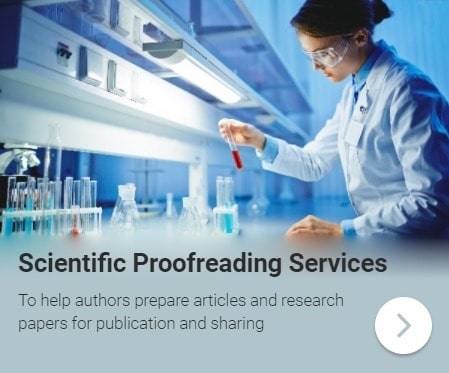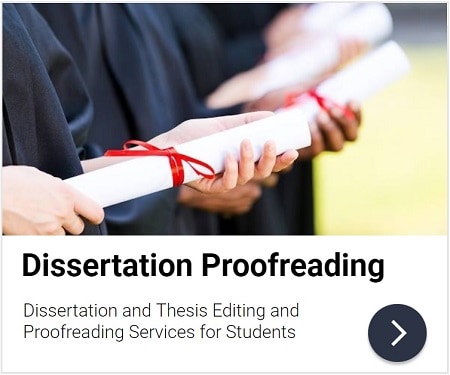5.4.3 Nouns and Agreement
The use of most English nouns is relatively straightforward, but spelling and word choice can sometimes be an issue if English is not your native language. It is usually quite easy to deal with such problems through careful and critical proofreading, especially with the assistance of the spell-checking function of your word-processing program, which in most cases will highlight obvious errors (though it should not be trusted to discover them all). If a word is underlined or otherwise highlighted by the program, check the spelling and correct it if necessary; if spelling is not the problem, it is likely that you have chosen the wrong or an inappropriate word (perhaps you used ‘content’ for ‘context,’ for example, ‘implementation’ for ‘intervention’ and so on), in which case you will need to use a dictionary or perhaps a thesaurus to find the correct or a more appropriate word. Watch for nouns that are too vague to express your exact meaning to all readers: ‘in this context,’ ‘in our area’ and ‘in local universities’ are classic examples of instances in which you and your thesis committee will know what you are talking about, but other readers (especially those from other contexts and areas) cannot unless the context or area you are working in or the location of those universities is specified wherever necessary for absolute clarity (specific language is also best for dates: see Section 6.4.4). Conversely, your language should not be so specific to one country or region that its meaning will not be fully understood by international readers: currency and educational systems are good examples of topics for which you should provide not only specific information relevant to the original locality, but also careful enough explanations of the specifics to make them clear to readers who are not familiar with that locality and its culture.
Agreement should always be maintained between nouns and the verbs used with them, which in most cases is easily established: singular nouns should be used with the singular forms of verbs (‘the doctoral candidate investigates,’ ‘the brush untangles’ and ‘the child plays’) and plural nouns with the plural forms of verbs (‘the doctoral candidates investigate,’ ‘the brushes untangle’ and ‘the children play’). If you want your language to suggest the possibility of both singular and plural situations simultaneously, for most nouns you can enclose the ‘s’ or ‘es’ of the plural form in parentheses – ‘the methodology chapter(s)’ – in which case the verb form should be governed by the singular noun because the plural is technically parenthetical: for example, ‘the methodology chapter(s) describes the research methods used in the thesis.’ Another (and often preferable) solution is to word the text in such a way that the verb works for both the singular and plural forms of the noun: ‘the methodology chapter(s) should describe the research methods used in the thesis.’ With plural nouns formed through the addition of endings other that ‘s’ or ‘es,’ the same strategy can be used – ‘the child(ren) will be going to a party this afternoon’ – but with nouns that change their stems to form the plural (such as ‘man’ that becomes ‘men’ and ‘woman’ that becomes ‘women’), effective constructions can be complicated and confusing for readers, and are generally best avoided.
There are certain nouns in the English language that present special challenges when it comes to agreement. Plural nouns that seem like singular nouns (‘data,’ ‘media,’ ‘criteria’ etc.), for instance, should take a plural verb (‘the criteria required were,’ not ‘the criteria required was’), although ‘data’ can, alternatively, be used as a singular noun (‘the data were’ or ‘the data was’). This is to say that ‘data’ can be treated as a collective or group noun instead of as a normal plural noun, in which case the important point is to ensure that the noun is treated as a singular whenever it is used in a document. With collective nouns in general, it is essential that each noun is consistently treated as either a singular or a plural, ideally throughout a thesis and certainly within a single sentence, but this can be rather tricky because such nouns tend to be used as both singular and plural in casual conversation, so there is a tendency to be inconsistent: for example, in ‘The society was founded in 1995; since then, they have grown rapidly,’ ‘they have’ in the second part of the sentence should actually be ‘it has’ to agree with the singular ‘society’ and its verb ‘was’ in the first part. Also complicated is the fact that the decision to use a singular or plural verb with a collective noun can depend on whether the noun refers to the group as a unit (singular) or to its members as individuals (plural), and also on whether British or American English is used: in American English, when the group is considered as a unit, a singular verb is usually used (our hockey team is playing very poorly this year), but in British English, collective nouns tend to use plural verbs (our hockey team are playing very poorly this year). The collective nouns ‘couple’ and ‘pair’ are usually used as plurals when they refer to people – ‘The couple ride their bicycles to work’ – but collective nouns of quantity such as ‘number,’ ‘percentage’ and ‘proportion’ tend to take a singular verb when a definite article precedes the noun and a plural verb when an indefinite article precedes the noun (‘The proportion of customers with home phones is decreasing,’ but ‘A large proportion of customers are giving up their home phones in favour of mobile phones’).
5.4.4 Both, Either, Neither, Nor and Only
Certain other words, phrases and constructions can cause particular problems when constructing sentences, especially for authors whose native language is not English. ‘Both’ takes a plural verb (e.g., ‘both a pool and a water slide were added to the playground’), whereas ‘either’ and ‘neither’ take a singular verb (either a pool or a water slide is being added to the playground), and so does a ‘neither . . . nor’ construction (neither a pool nor a waterslide was added to the playground). Please note that ‘or’ should not be used instead of ‘nor’ in a ‘neither . . . nor’ construction.’ ‘Neither,’ ‘either’ and ‘both’ should be correctly positioned in a sentence to achieve balance and avoid repetition, so the phrasing should be ‘that affect neither him nor her,’ not ‘that neither affect him nor her,’ and ‘that affect both him and her,’ not ‘that both affect him and her.’ ‘Only’ can be placed where it sounds best in a sentence unless there is a possibility of ambiguity or confusion, in which case it should be carefully positioned to clarify the meaning: for example, ‘vegetable gardens only watered on Sundays’ could mean ‘only vegetable gardens are watered on Sundays’ or ‘vegetable gardens are watered on Sundays only’ or ‘vegetable gardens are watered, but not weeded, on Sundays’ (examples adapted from Butcher et al., 2006, p.164). It is therefore wise to consider all the placement and semantic options as you are writing such sentences and choose the one that most effectively expresses your intentions. ‘Only’ can also be problematic when used not to mean ‘exclusively,’ but to refer to a small number or percentage: ‘just 39%’ or ‘as small as 39%’ is more accurate than and preferable to ‘only 39%.’
5.4.5 Beginning Sentences Correctly and Avoiding Dangling Participles
The wording at the beginning of sentences should be both precise and complete in formal scholarly prose, and certain elements should not be used in that position. Numerals, for instance, should be avoided, so any number at the beginning of a sentence should be written out in words unless writing it out would be cumbersome (e.g., ‘237,482’ would be very unwieldy if written as words), in which case the sentence should be reworded to avoid using the number at its beginning (for information on formatting numbers, see Section 6.4 below). Certain abbreviations should also be avoided at the beginning of sentences, although acronyms and initialisms are usually acceptable (see Section 6.3.8 below). As a general rule, sentences should not begin with conjunctions such as ‘and,’ ‘or,’ ‘but’ and ‘so,’ although the occasional lapse in this regard, even in formal writing, is tolerated in most cases as long as the sentence does not begin a paragraph, the meaning is clear and the rhythm of the prose is effective. A sentence and especially a paragraph should not normally start with a pronoun such as ‘this,’ ‘that’ or ‘they’ even if the antecedent is clear from what has gone before, but particularly if the antecedent is at all ambiguous. Instead, the subject should be clearly stated as a noun or noun phrase to avoid confusion, but the pronoun ‘I’ (as well as ‘we’ in texts with more than one author) is acceptable at the beginning of a sentence or paragraph because there can be no doubt, if the pronoun is used only when it should be, about the meaning. Keep in mind that when a descriptive phrase is used at the beginning of a sentence, it applies to everything that follows until the subject changes or is restated: in the sentence ‘In 1879 he painted his first watercolour and began to work with oils in 1886,’ for instance, the date 1879 applies incorrectly to ‘began’ as well as correctly to ‘painted,’ so rewording is necessary: either ‘He painted his first watercolour in 1879 and began to work with oils in 1886’ or ‘In 1879 he painted his first watercolour, and in 1886 he began to work with oils’ would work.
Dangling participles are often problematic at the beginning of sentences, though they can turn up anywhere in a sentence. A dangling participle occurs when a participle or participial phrase is followed by a word other than the subject it modifies, as it is in ‘Plunging to enormous depths, we marvelled at the canyon’ and ‘Having found the right food at last, the diabetic dog was fed.’ It is clear to a thinking reader familiar with English that the ‘canyon’ plunges ‘to enormous depths’ and the person feeding the dog is the one who ‘found the right food,’ but the sentences do not actually say these things: they say that ‘we’ plunge ‘to enormous depths’ and ‘the diabetic dog’ was the one who ‘found the right food’ because those are the subjects that appear immediately after the participial phrases. Such sentences should be reworded so that their syntax reflects the realities reported: ‘We marvelled at the canyon that plunged to enormous depths’ and ‘Having found the right food at last, he fed the diabetic dog.’ Other kinds of dependent clauses that frequently appear at the beginning of sentences can present problems as well, particularly when they are mistakenly used as independent clauses or full sentences. Although a dependent clause contains a subject and a verb (as the opening clause of this sentence does), it does not express a complete thought; instead, it often begins with a dependent marker word (such as ‘after,’ ‘when,’ ‘if,’ ‘because’ and ‘although’) that leaves the reader waiting for the rest of the thought: ‘After he had drafted his thesis’ and ‘Because she is afraid of fireworks’ are good examples. For this reason, a dependent clause cannot be a complete sentence, but should be either followed by a comma and an independent clause that does complete the thought, or preceded by an independent clause and (if necessary) a comma: ‘After he had drafted his thesis, he had it checked by a professional proofreader’ or ‘We left our dog at home because she is afraid of fireworks.’
Why PhD Success?
To Graduate Successfully
This article is part of a book called "PhD Success" which focuses on the writing process of a phd thesis, with its aim being to provide sound practices and principles for reporting and formatting in text the methods, results and discussion of even the most innovative and unique research in ways that are clear, correct, professional and persuasive.
The assumption of the book is that the doctoral candidate reading it is both eager to write and more than capable of doing so, but nonetheless requires information and guidance on exactly what he or she should be writing and how best to approach the task. The basic components of a doctoral thesis are outlined and described, as are the elements of complete and accurate scholarly references, and detailed descriptions of writing practices are clarified through the use of numerous examples.
The basic components of a doctoral thesis are outlined and described, as are the elements of complete and accurate scholarly references, and detailed descriptions of writing practices are clarified through the use of numerous examples. PhD Success provides guidance for students familiar with English and the procedures of English universities, but it also acknowledges that many theses in the English language are now written by candidates whose first language is not English, so it carefully explains the scholarly styles, conventions and standards expected of a successful doctoral thesis in the English language.
Individual chapters of this book address reflective and critical writing early in the thesis process; working successfully with thesis supervisors and benefiting from commentary and criticism; drafting and revising effective thesis chapters and developing an academic or scientific argument; writing and formatting a thesis in clear and correct scholarly English; citing, quoting and documenting sources thoroughly and accurately; and preparing for and excelling in thesis meetings and examinations.
Completing a doctoral thesis successfully requires long and penetrating thought, intellectual rigour and creativity, original research and sound methods (whether established or innovative), precision in recording detail and a wide-ranging thoroughness, as much perseverance and mental toughness as insight and brilliance, and, no matter how many helpful writing guides are consulted, a great deal of hard work over a significant period of time. Writing a thesis can be an enjoyable as well as a challenging experience, however, and even if it is not always so, the personal and professional rewards of achieving such an enormous goal are considerable, as all doctoral candidates no doubt realise, and will last a great deal longer than any problems that may be encountered during the process.
Interested in Proofreading your PhD Thesis? Get in Touch with us
If you are interested in proofreading your PhD thesis or dissertation, please explore our expert dissertation proofreading services.


Services
PhD Dissertation Proofreading
Our PhD dissertation proofreaders specialise in improving grammar, sentence structure, citations, references, clarity, logical flow and readability.
Master’s Dissertation Proofreading
To avoid failure and its consequences, send your dissertation to our master’s dissertation proofreading service.
Dissertation Proofreading Services
Our dissertation proofreaders specialise in correcting and perfecting the language, editorial styles and references across all science fields.
Headquarters
Dissertation-Proofreading.com
Allia Future Business Centre
The Guildhall
Market Square
Cambridge
CB2 3QJ
United Kingdom
More Expert Proofreading Services
Journal Editing
Journal article editing services
PhD Thesis Editing
PhD thesis editing services














